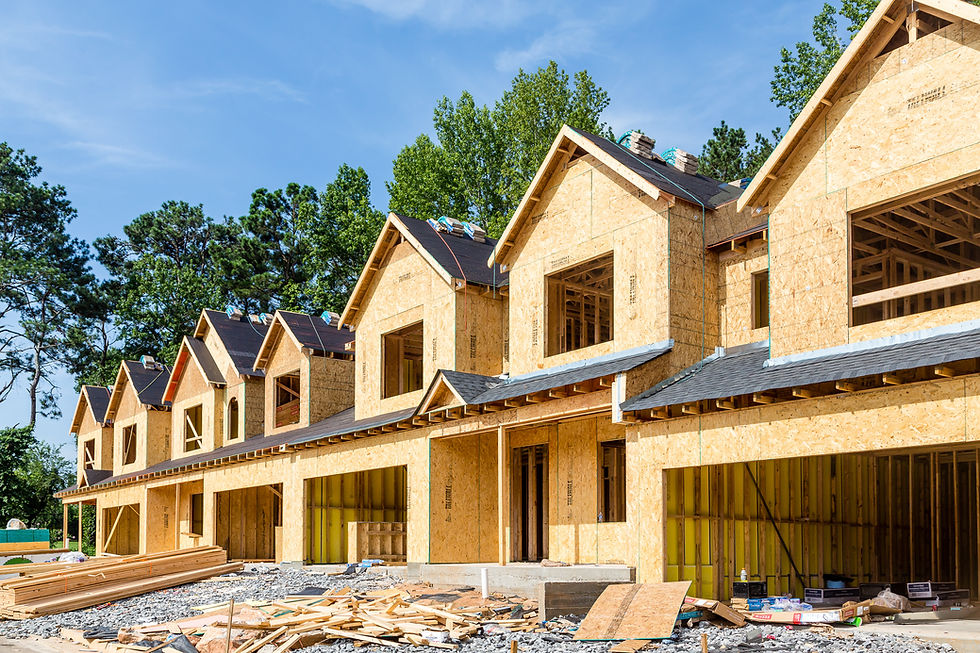
Last week the parties released their manifestos for the 12th December General Election, which most commentators agree offers the starkest choice on what type of country we want to live in since at least 1983, when socialist Michael Foot took on Margaret Thatcher.
Both main parties have clear messages that dominate the introductions to their manifestos. For the Tories “Get Brexit Done” and for Labour “It’s Time For Real Change”. However, reading the manifesto forewords, by the two party leaders respectively you are struck by the fact that neither of them explicitly mention housing or development at all. The Conservative manifesto doesn’t tackle housing policy until page 25 and Labour don’t address it until page 77. The NHS, climate change, police numbers, tax policy and of course Brexit are taking centre stage and one can’t help but notice this is at the expense of housing.
This is in spite of the near universal acceptance that we are in the middle of a housing crisis. Perhaps this reflects the sad fact that election campaigns focus too much on repeating simple popular messages rather than grappling with the central challenges our country will face over the next 20 years. The adult social care crisis and the challenges of ever increasing automation are suffering the same fate when it comes to attention in this campaign and it may be that in the years to come we will regret that they have featured so little in our national conversation at this undoubtedly seminal election.
In keeping with the rest of the Labour manifesto their proposed policies on housing are radical and ambitious. They promise to create a new Department for Housing which will address all aspects of the housing crisis and close the gap between the “housing haves and have-nots” which has been brought into such clarity by the Grenfell disaster and rising levels of homelessness. Their underlying principle is that society should not treat homes as “financial assets rather than places to live”. To this end, they propose to build a million new homes over the next decade. By the end of the next Parliament, councils will have a duty to build 100,000 new council houses a year across England and Wales.
Labour will also redefine ‘affordable’ and link it to local incomes, they will immediately end the right to buy policy which is so emblematic of Thatcherism and they will take on the ‘dodgy landlords’ by capping rents, ending ‘no-fault’ evictions, funding new renters’ unions and ensuring all rented homes meet a minimum standard. They are also promising to remove the permitted development rights which allow offices to be converted into homes without going through the planning system.
The Conservatives on the other hand base their housing policy on the long held Conservative principle of home ownership. When reading the Tory manifesto one can hear the echo of Margaret Thatcher in the vision of a property owning democracy where everyone should aspire to own their own home rather than be tenants of the state. They are therefore committed to maintaining right to buy and want to “rebalance the housing market towards more home ownership”. They will increase the number of new homes being built including “hundreds of thousands of affordable homes” and want to build a million new homes of all tenures by the end of the next Parliament.
This will not be at the expense of the green belt though, which they promise to protect and enhance whilst redeveloping brownfield sites. They do make broad commitments to improve the rights of private renters and the safety and quality of social housing, although the detail of how they would go about this is lacking. Overall, they say that they have a good record of housebuilding since 2010 and that they stand by their past achievements (it is notable that the phrase ‘housing crisis’ does not appear anywhere in the manifesto) but they acknowledge that there is more to be done.
Both main parties therefore are keen to claim that they can deliver the large number of new homes the country needs and on the surface they both promise to deliver similar numbers over the next Parliament. Both are also committed to making sure these new homes are sustainable, energy efficient and environmentally friendly. However, these surface level similarities obscure the profound difference in outlook that Johnson and Corbyn have about the role of housing in society and their resulting priorities.
Corbyn would priorities building low cost council homes, seriously shift power from landlords to tenants and eradicate homelessness. On the other hand, Johnson wants to reinvigorate the aspirational home-owning democracy that the Conservatives have been committed to since 1979. This choice is part of the broader ideological struggle at this election. It is clear the country must make this ideological choice before the winner can begin to formulate a well thought out and detailed strategy to achieve their priorities.

Comments